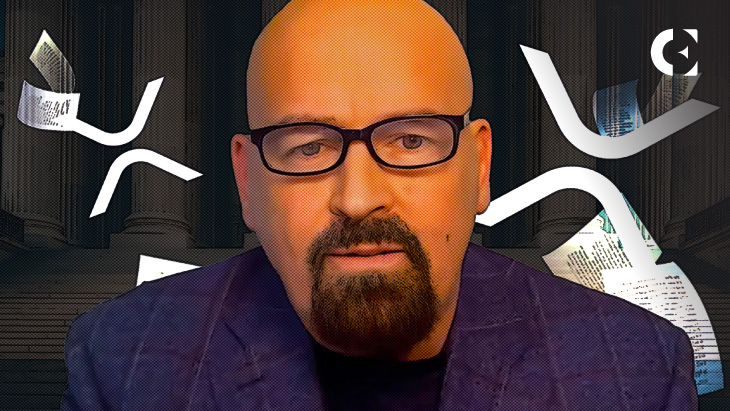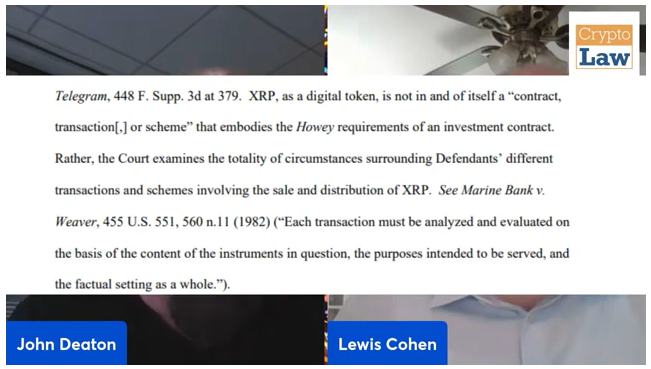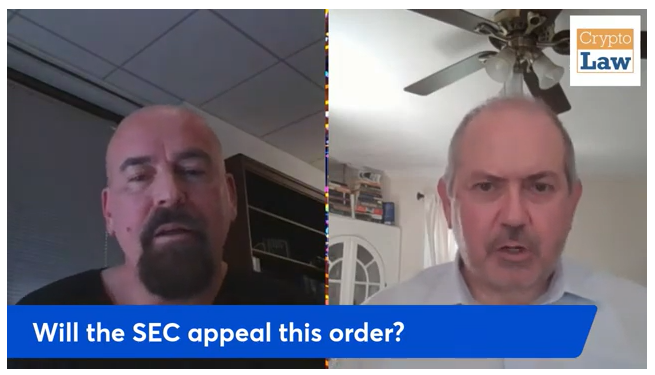- Attorney Lewis Cohen and John Deaton presented the “embodiment theory” in the SEC v. Ripple case.
- The judge adopted the “embodiment theory” and ruled that XRP is not a security.
- The possibility of a SEC appeal was discussed, with speculation that it could be to offer a satisfactory settlement to Garlinghouse and Larsen.
Attorney Lewis Cohen of DLx Law, in collaboration with founder and host of CryptoLawTV John Deaton, presented a compelling argument, known as the “embodiment theory,” leading to the court ruling that XRP is not a security in and of itself.
In a recent discussion on CryptoLawTV, a channel known for its ability to transform complex legal jargon into layman terms, Deaton highlighted Cohen’s contribution to the SEC v. Ripple case. He revealed that the judge had read Lewis’ article and adopted the phrase “embodiment theory” from it, as seen in the judge’s ruling.
The article by Cohen, an expert in the field, examined the Howey test in depth, asserting that digital assets should be evaluated based on their inherent characteristics rather than their usage or application. The embodiment theory argued that XRP, as a digital token, cannot be classified as a security since it does not embody the key requirements of an investment contract as established in the Howey test.
The discussion also touched upon the possibility of a SEC appeal following Judge Torres’ decision. As per Cohen, one reason could be is to offer Garlinghouse and Larsen a settlement that’s very satisfactory to them. Deaton responded:
If I’m representing Garlinghouse or Larsen if the SEC files an interlocutory appeal, I’m pounding the table, I’m objecting to it, even though they didn’t get everything they wanted.
SEC Chair Gary Gensler has conveyed his disappointment with the court’s ruling and indicated that the regulatory body is presently assessing its alternatives. Conversely, Deaton is of the opinion that Judge Torres will turn down the SEC’s appeal.
The court’s verdict, which has been aptly referred to as the “Torres Doctrine” by a congressman, signifies a turning point in the debate over XRP’s classification as a security. The decision has already prompted calls for the SEC Chairman to reconsider the Coinbase lawsuit.
Disclaimer: The information presented in this article is for informational and educational purposes only. The article does not constitute financial advice or advice of any kind. Coin Edition is not responsible for any losses incurred as a result of the utilization of content, products, or services mentioned. Readers are advised to exercise caution before taking any action related to the company.









